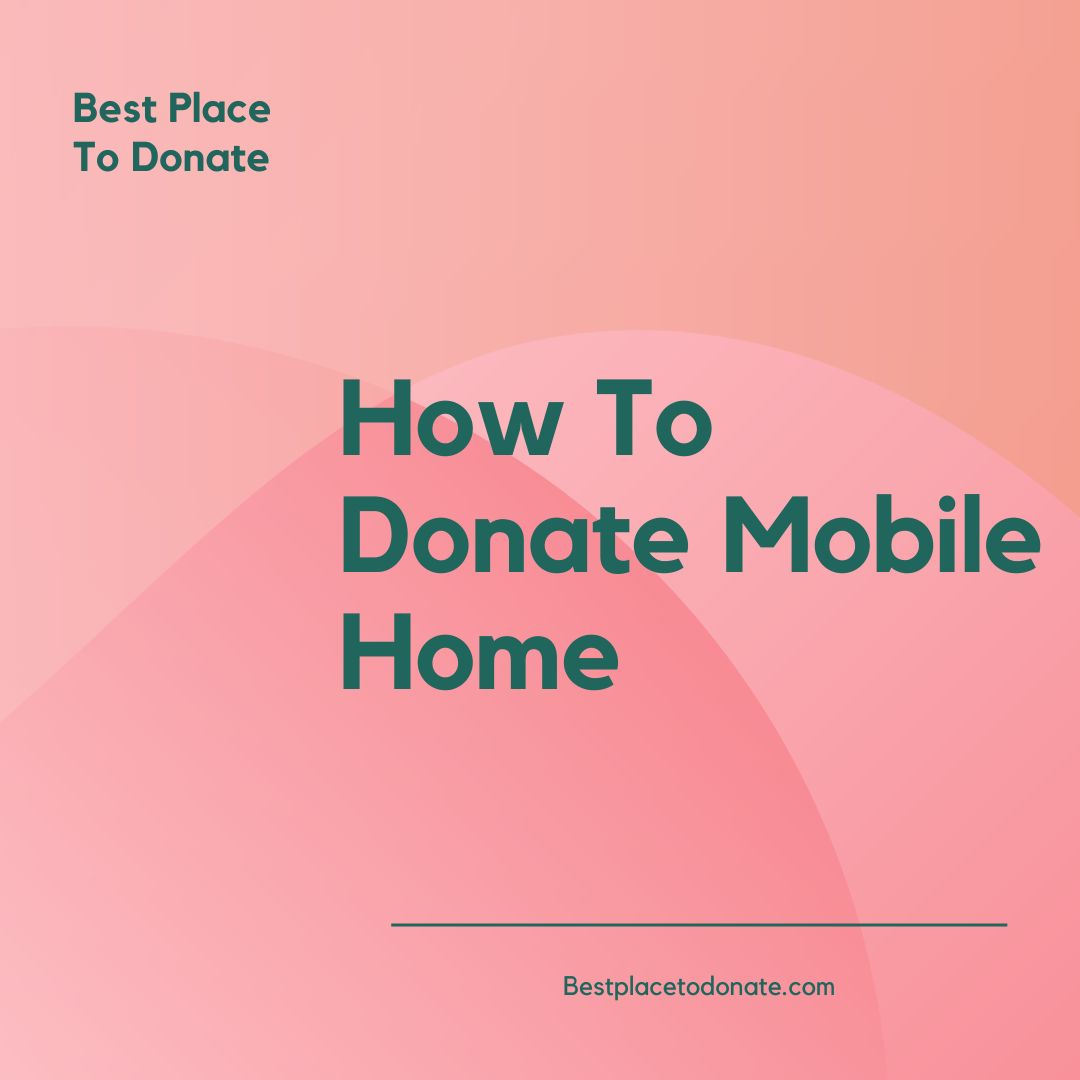
How To Donate Mobile Home : Are you looking to make a meaningful impact while parting ways with your mobile home? Donating your mobile home is not only a generous act of giving but also an opportunity to benefit from potential tax incentives. In this guide, we’ll explore the ins and outs of mobile home donation, how the process works, the numerous benefits it offers, and provide you with a list of reputable non-profit organizations in the USA that accept mobile home donations. Discover the transformative journey your mobile home can take as it goes from being an underutilized structure to a lifeline for those in need. Let’s delve into the world of mobile home donation and the positive change it can bring to your life and your community and also check Where To Donate Bibles to Prisoners.
What is a Mobile Home Donation?
Mobile home donation is a charitable act where individuals or organizations give away their mobile homes to non-profit entities or charities instead of selling or disposing of them. This form of donation not only assists those in need but also provides potential tax benefits to the donor.
How Mobile Home Donation Works
- Find a Reputable Charity: The first step in mobile home donation is to locate a reputable non-profit organization that accepts such donations. Charities can differ in their focus, such as providing housing for low-income families, supporting veterans, or contributing to disaster relief efforts.
- Assessment: The chosen charity usually assesses the mobile home to determine its condition, value, and suitability for donation.
- Donation Agreement: Once the mobile home is approved for donation, a donation agreement is created. This document outlines the terms and conditions of the donation.
- Transfer of Ownership: The donor formally transfers ownership of the mobile home to the charity. This process may entail paperwork and legal procedures, which the charity will guide you through.
- Tax Benefits: Donors may be eligible for tax deductions or credits, depending on the value of the mobile home and the specific tax laws in their area.
Benefits of Donating Mobile Homes
- Tax Benefits: Donors can often claim tax deductions or credits, potentially reducing their overall tax liability.
- Supporting a Cause: Mobile home donations provide much-needed housing for individuals and families who may not otherwise afford it, contributing to a noble cause.
- Environmental Impact: Donating a mobile home is an eco-friendly way to dispose of it, as it can be repurposed and reused, reducing waste and the burden on landfills.
- Simplified Process: Donating a mobile home is typically a straightforward process, as the charity handles most aspects, making it a convenient way to give back.
Best NPO Accepting Mobile Home Donations in the USA
- Habitat for Humanity
- Website: www.habitat.org
- Phone: 1-800-HABITAT
- Purple Heart Foundation
- Website: www.purpleheartpickup.org
- Phone: 1-800-924-0188
- Salvation Army
- Website: www.salvationarmyusa.org
- Phone: 1-800-SA-TRUCK
- Local Charities
- Many local non-profit organizations accept mobile home donations. Research online or contact your local government for recommendations on charities in your area.
Before and After Checklist For Mobile Home Donation:
Before Mobile Home Donation:
- Underutilized Property: The mobile home is often unused or underutilized, occupying space without fulfilling a purpose.
- Maintenance and Repairs: It may require regular maintenance or significant repairs, incurring ongoing expenses for the owner.
- Potential Environmental Impact: Without proper disposal, there is a risk of environmental impact if the mobile home is not recycled or reused.
- Financial Burden: Owning an unused mobile home can be a financial burden, as property taxes and insurance costs may continue.
- Missed Opportunity for Giving Back: Before donation, the mobile home represents a missed opportunity to support those in need or a charitable cause.
After Mobile Home Donation:
- Transformed Living Space: The donated mobile home is transformed into a habitable living space, providing shelter and security for individuals or families in need.
- Reduced Environmental Impact: By repurposing the mobile home, there is a reduced environmental impact, as it is diverted from landfills, contributing to sustainability.
- Relief from Financial Obligations: The donor is relieved of financial obligations related to property taxes, insurance, and maintenance expenses, providing peace of mind.
- Positive Community Impact: The mobile home donation has a positive impact on the community by addressing housing needs and promoting a sense of goodwill.
- Personal Fulfillment: Donors often experience a sense of personal fulfillment and satisfaction in knowing that their donation has made a meaningful difference in someone’s life.
These points illustrate the transformation that occurs when a mobile home is donated, from an underutilized structure to a valuable resource for those in need and the community as a whole.
Conclusion
Mobile home donation is a compassionate and environmentally responsible way to support individuals and families in need. By partnering with reputable non-profit organizations, donors can make a significant impact on their communities, reduce waste, and potentially benefit from tax incentives.
Frequently Asked Questions
Are mobile home donations tax-deductible?
Yes, in many cases, mobile home donations are tax-deductible. The specific tax benefits depend on the value of the mobile home and local tax laws.
Do I need to transport the mobile home to the charity myself?
In most cases, the charity will arrange for the transportation of the mobile home as part of the donation process.
Can I donate a mobile home that needs repairs?
Some charities accept mobile homes in need of repairs, but the extent of the repairs required may vary. It’s best to inquire with the charity about their acceptance criteria.
How do I find a reputable charity for mobile home donation in my area?
Research online, contact local non-profits, or consult with your local government for recommendations on reputable charities that accept mobile home donations in your region.
